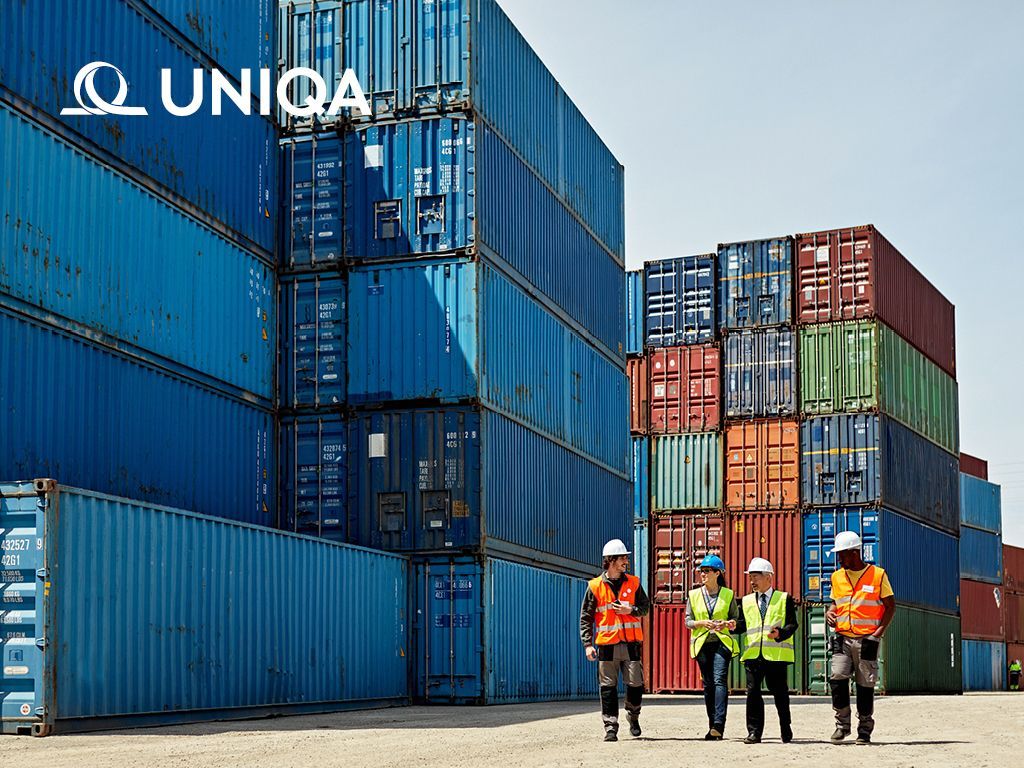Insuring Goods in Transport
Source: eKapija
 Monday, 09.05.2022.
Monday, 09.05.2022.
 15:52
15:52
 Monday, 09.05.2022.
Monday, 09.05.2022.
 15:52
15:52

Everybody who is exposed to the risk of suffering financial losses if the goods are lost, damaged or destroyed or who could benefit from a successful arrival of the goods to the destination has an interest and a need for insuring goods in transport. These can be purchasers, sellers, importers, exporters, contractors, banks and others. To determine the insurable interest, the Incoterms rules are used most frequently, which are an international trade language which facilitates the signing and the interpretation of the stipulations of a sales and purchase contract. Two parities, CIP and CIF, proscribe the obligation of the seller to insure the goods in transport, whereas, according to other parities, the decision is up to the parties to the agreement.
If you are in the world of international trade, use the advantage and insure your goods through the cargo policy of UNIQA osiguranje.
How to protect your interest?
Regardless of the means of transportation and the transport relation, until they reach their destination, the goods are exposed to a whole range of risks which can cause its damage and consequently lower its value, and in the worst-case scenario, its loss.
That’s where the insurance of goods in transport, also known as cargo insurance, comes into play. It covers physical damage or the loss of goods during the usual transport process, including storage along the way, whether the goods are transported within the borders of a single state or the goods are crossing the border and are accompanied by customs documents.
Regarding the means of transport, we differentiate between maritime insurance, as well as insurance in internal navigation, road, rail, air and combined cargo insurance.
The insurance of goods in transport can be agreed using the “named perils” method and the “all risks” method. The basic risks include: fire or explosion, traffic or navigation accidents, natural disasters (floods, rain showers, lighting, storms, blizzards, landslides, earthquakes, volcanic eruptions etc.), whereas the “all transport risks” (AAR) clause covers all the risks of a loss or damage to the insured object, except for the damages excluded from the insurance. Practically, according to the AAR clause, all the previously mentioned risks are covered, as are additional risks, such as manipulation risks, thefts, partial thefts and the failure to deliver the goods, malicious and counter-legal acts of a person, general average etc.
It is also possible to sign a coverage for the so-called special risks, where the cause of the damage originates in the insured object itself, its internal flaws or natural characteristics, such as: self-combustion, spilling, leaking, heating and/or condensation, thawing, freezing, explosion, all due to any cause, weevil or moth risks etc.
For the international maritime and combined insurance of goods in transport, the unified Institute Cargo Clauses prepared by the Institute of London Underwriters are usually used.
In road international transport, the basis for the insurance of goods (Cargo) in road transport is set by Incoterms. In addition to the insurance of goods, there’s also the automobile liability insurance, which covers exclusively the damages for the proven subjective responsibility of the transporter under the international CMR Convention on road transport and does not represent any automatism for the recognition of damages done to the goods.
In maritime international transport, in addition to standard transport risks, Cargo also insures the owners of the goods from the so-called “maritime rights risks”. In the case that a General Average is pronounced, it could be important to help the owner of the goods to overcome the extraordinary situation and protect their goods which was in the transport process at the moment.
Insurance can be signed individually, for each transport, or according to the general policy (GPT) for all the transports done during the insurance period specified in the contract.
The insurance of goods in transport is the primary insurance which the Transportation Team of UNIQA osiguranje is in charge of and which you can contact regarding additional questions at the following address: [email protected]
Companies:
 UNIQA neživotno osiguranje a.d.o. Beograd
UNIQA neživotno osiguranje a.d.o. Beograd
Tags:
UNIQA osiguranje
Institute of London Underwriters
insuring goods in transport
international trade
insurable interest
Incoterms rules
CIP
CIF
cargo insurance
physical damage
loss of goods
storage along the way
maritime insurance
internal navigation insurance
road insurance
rail insurance
air insurance
combined cargo insurance
CMR Convention on road transport
maritime rights risks
special edition newsletter
logistics and transport
Comments
Your comment
Most Important News
Full information is available only to commercial users-subscribers and it is necessary to log in.
Follow the news, tenders, grants, legal regulations and reports on our portal.
Registracija na eKapiji vam omogućava pristup potpunim informacijama i dnevnom biltenu
Naš dnevni ekonomski bilten će stizati na vašu mejl adresu krajem svakog radnog dana. Bilteni su personalizovani prema interesovanjima svakog korisnika zasebno,
uz konsultacije sa našim ekspertima.


 Izdanje Srbija
Izdanje Srbija Serbische Ausgabe
Serbische Ausgabe Izdanje BiH
Izdanje BiH Izdanje Crna Gora
Izdanje Crna Gora


 News
News








